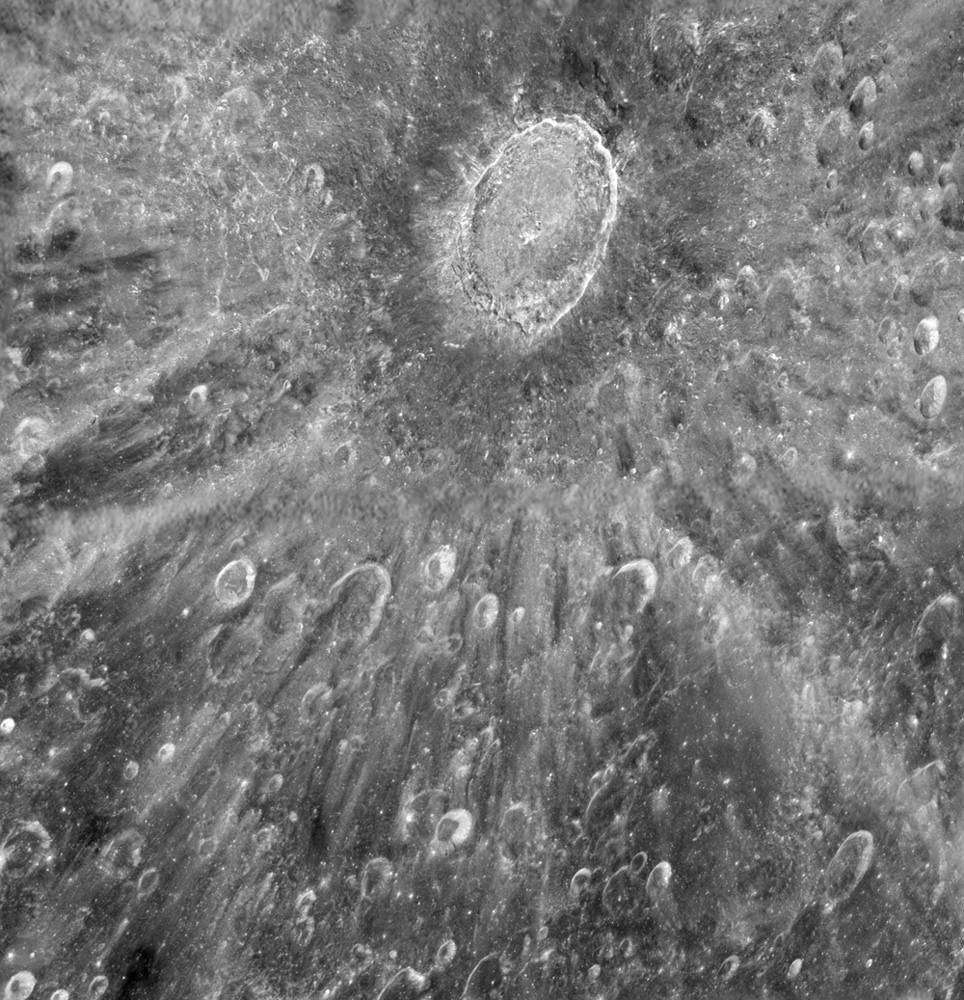[/caption]
Venus moving across the face of the Sun, from our vantage point here on Earth, is such a rare event, that astronomers and observatories around the world have been preparing for this year’s Venus Transit, on June 5-6. And one observatory that is literally “around the world,” – the Hubble Space Telescope — is even planning to make observations of this transit event. What, you say? The Hubble telescope can’t look at the Sun – it would fry every component on board! Hubble scientists are being pretty sneaky, if not resourceful so they too can join in the observations.
Since Hubble can’t look at the Sun directly, astronomers are planning to point the telescope at the Moon, using it as a mirror to capture reflected sunlight and isolate the small fraction of the light that passes through Venus’s atmosphere. Imprinted on that small amount of light are the fingerprints of the planet’s atmospheric makeup.
Scientists say these observations will mimic a technique that is already being used to sample the atmospheres of giant planets outside our solar system passing in front of their stars. In the case of the Venus transit observations, astronomers already know the chemical makeup of Venus’s atmosphere, and that it does not show signs of life on the planet. But the Venus transit will be used to test whether this technique will have a chance of detecting the very faint fingerprints of an Earth-like planet, even one that might be habitable for life, outside our solar system that similarly transits its own star.
Venus is an excellent stand in for Earth because of how similar in size and mass it is to our planet.
Several different instruments on Hubble will be used in this special observation. The Advanced Camera for Surveys, Wide Field Camera 3, and Space Telescope Imaging Spectrograph, to view the transit in a range of wavelengths, from ultraviolet to near-infrared light. During the transit, Hubble will snap images and perform spectroscopy, dividing the sunlight into its constituent colors, which could yield information about the makeup of Venus’s atmosphere.
Hubble will observe the Moon for seven hours, before, during, and after the transit so the astronomers can compare the data. Astronomers need the long observation because they are looking for extremely faint spectral signatures. Only 1/100,000th of the sunlight will filter through Venus’s atmosphere and be reflected off the Moon.
Because the astronomers only have one shot at observing the transit, they had to carefully plan how the study would be carried out. Part of their planning included the test observations of the Moon, such as when they took the top image of Tycho Crater.
Hubble will need to be locked onto the same location on the Moon for more than seven hours, the transit’s duration. For roughly 40 minutes of each 96-minute orbit of Hubble around the Earth, the Earth occults Hubble’s view of the Moon. So, during the test observations, the astronomers wanted to make sure they could point Hubble to precisely the same target area.
This is the last time this century sky watchers can view Venus passing in front of the Sun. The next transit won’t happen until 2117. Venus transits occur in pairs, separated by eight years. The last event was witnessed in 2004.
Find more on how you can observe the Venus transit for yourself in this article by Tammy Plotner.
Source: HubbleSite


like Lillian said I am dazzled that a person able to profit $5335 in 4 weeks on the computer. did you see this web link ===>> http://seekwork2home.blogspot.com/
What we can do with modern space science is amazing, to say the least.
“1/100,000th of the sunlight will filter through Venus’s atmosphere”
That fraction sounded high to me, until I realized that Venus is also almost 4 times closer than the Sun, when passing directly in front of it. (Distance = 0.274 AU.) With the inverse square law, that makes the readings 13x more sensitive than if Venus were as far as the Sun.
Still, that’s a helluva sensitive spectrograph!
all this time they said Hubble can`t look at the Moon cause it`s shining, now it can ?
The Hubble Telescope took images of the Moon already in 1996 i believe it was.
The brightness of the Moon has never been a factor (urban legend), however when initially launched the tracking of the moving Moon caused problems. Observing the Moon is however is an expensive exercise that would cut observing time elsewhere.
Online Money Making is one of the most demanded things from couple of years. Everyone wants to earn money efficiently and with little efforts. There are so many ways by which you can earn money online, just some techniques and little effort is required to do. Right now internet is one of the richest fields where one can not only earn money also can prove him by making his dreams true. One of my best friend is earning good weekly cash and last week he got 2000$. Just move here for further details? http://earnusdathome.weebly.com/
Online Money Making is one of the most demanded things from couple of years. Everyone wants to earn money efficiently and with little efforts. There are so many ways by which you can earn money online, just some techniques and little effort is required to do. Right now internet is one of the richest fields where one can not only earn money also can prove him by making his dreams true. One of my best friend is earning good weekly cash and last week he got 2000$. Just move here for further details? http://earnusdathome.weebly.com/